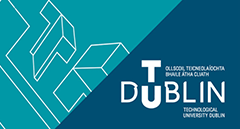Abstract
This study is positioned within the context of the current recommendations for increased interdisciplinary and collaborative engagement in curriculum development (Department of Education and Skills, 2011, p.35). Supported also by recommendations for professional arts practitioners to be multi-skilled, circulated in such publications as the European Association of Conservatoires reports (AEC, 2003), Trinity Guildhall's The Reflective Conservatoire (Odam & Bannan, 2005) and Collaborative Learning in Higher Education (Gaunt & Westerlund, 2013), this study is proposing that there are significant educational benefits from the implementation of and participation in opera-based activities. These possible benefits are discussed along with an overview of the range of skills and requirements which a career in opera is likely to demand. The paper includes as case-history a recent example of this collaborative approach - The Paris Collection, a large-scale opera project which was performed in January 2014 at the National Concert Hall in Dublin by students from Dublin Institute of Technology Conservatory of Music and Drama and designed by students from Dublin College of Creative Arts. The production was named thus because the two operas featured, Lehar's The Merry Widow and Puccini's La Bohème are both set in Paris.
The project was implemented through the undergraduate and postgraduate modular frameworks in each college and involved the engagement of over 160 students. The production, which was positively received and subsequently won the Institute for Designers in Ireland Highly Commended Award in the Education category, was deemed to be a success; an appraisal which was expressed not only in the positive response to the performance, but also through feed-back and evaluation from staff and students in various formal and informal de-briefing sessions. However, in the process of preparation and rehearsal, the enterprise also presented significant challenges and issues. Although the remit of the project included the implementation of a professional environment, compromises had to be made in several instances, in order to enable it to proceed. These compromises gave rise to several broader questions relating to collaborative enterprises and the implementation of authentic professional demands within an educational framework.
The paper concludes with a discussion of opera-training as a productive vehicle for interdisciplinary study. With reference to The Paris Collection as case-history, the educational relevance of the project is evaluated with an identification and analysis of the benefits and challenges which arose during that process. Recommendations may assist the sustainable facilitation of other future enterprises which can be devised to truly reflect professional practice, demands and criteria. They make particular reference to establishing collaborative projects within academic programmes where they can form an intrinsic modular role in the curriculum.
Creative Commons License

This work is licensed under a Creative Commons Attribution-NonCommercial-Share Alike 4.0 International License.
Recommended Citation
Hamilton, Jennifer
(2015)
""A Planet Where the Muses Work Together": Opera Training as a Vehicle for Interdisciplinary Engagement in Higher Education,"
Irish Journal of Academic Practice:
Vol. 4:
Iss.
1, Article 3.
doi:10.21427/D7V423
Available at:
https://arrow.tudublin.ie/ijap/vol4/iss1/3
DOI
10.21427/D7V423

